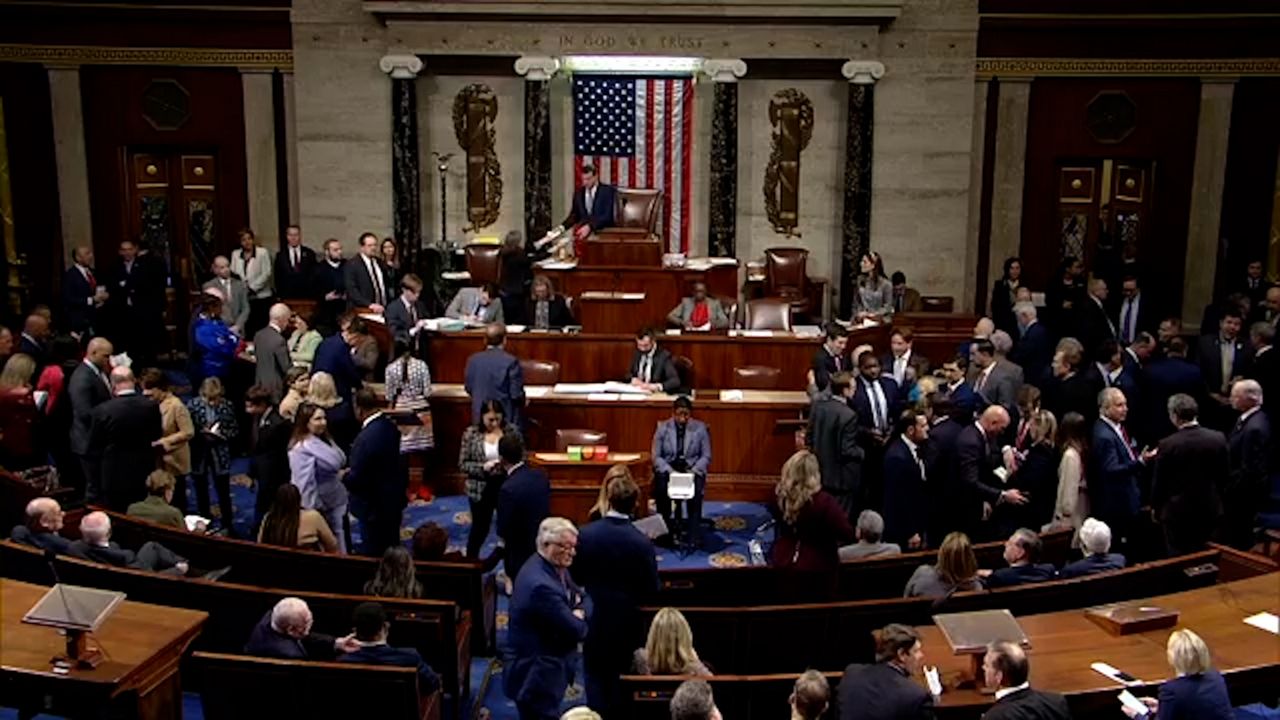WASHINGTON, D.C. — Lawmakers on Capitol Hill passed a temporary funding measure to keep the government running for the next week. They are expected to approve a bipartisan, bicameral agreement on a new federal budget.
What You Need To Know
- Lawmakers approved a temporary funding measure, the fourth since September, to avoid a partial government shutdown
- Congressional leaders announced a bipartisan budget deal that is expected to be voted on next week
- Some Republicans are calling for the budget deal should be tied to funding cuts and changes in U.S. border policy
The funding extension—referred to as a continuing resolution—will fund parts of the government through March 8 and the remainder until March 22. The stopgap does not change the demands of some Republicans to tie a full budget to funding cuts and border policy changes.
“As much as I want to fund the government—I don’t want to shut the government down—I think it’s much more important to get that border secure,” said Sen. JD Vance, R-Ohio.
Twenty-eight members of the House Freedom Caucus signed a letter saying if the caucus isn’t able to get border and budget cut concessions, the House should move to a different plan: passing a one-year continuing resolution because it would automatically trigger a 1% across-the-board funding cut starting in April.
That plan was pushed by Rep. Warren Davidson, R-Ohio in a post on X, formerly known as Twitter.
Davidson and Rep. Jim Jordan, R-Ohio, were among 97 Republican House members to vote against the temporary funding extension on Thursday.
Other Ohio Republicans said shutdowns or automatic cuts were not the answer to passing a good budget.
“One of the things people think is that when you shut the government down, we save money. We pay everybody anyway. We might not pay everybody right then, but we end up paying everybody,” said Rep. Bob Latta, R-Ohio. “And then it turns out it’s more expensive to restart the government.”
Latta said he remained concerned about the national debt. Interest payments alone will cost the government $870 billion this year—more than the government spends on Medicare or defense, according to the Congressional Budget Office.
“I think it’s important when we look at these spending bills that we look forward from them with good Republican principles and make sure we spend every dollar wisely,” Latta said.
Democratic lawmakers vented their frustration with the long process, and uncertainty that a full budget will be passed next week.
“We are in a month-to-month type of situation running the government. It’s really quite embarrassing when we have issues around the world that are really critically important,” said Rep. Shontel Brown, D-Ohio.
“Every few months we have this interview and you ask this question: is the government going to shut down? That’s why people hate Washington,” said Sen. Sherrod Brown, D-Ohio.
The continuing resolution is the fourth to be passed since September.



